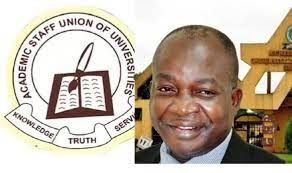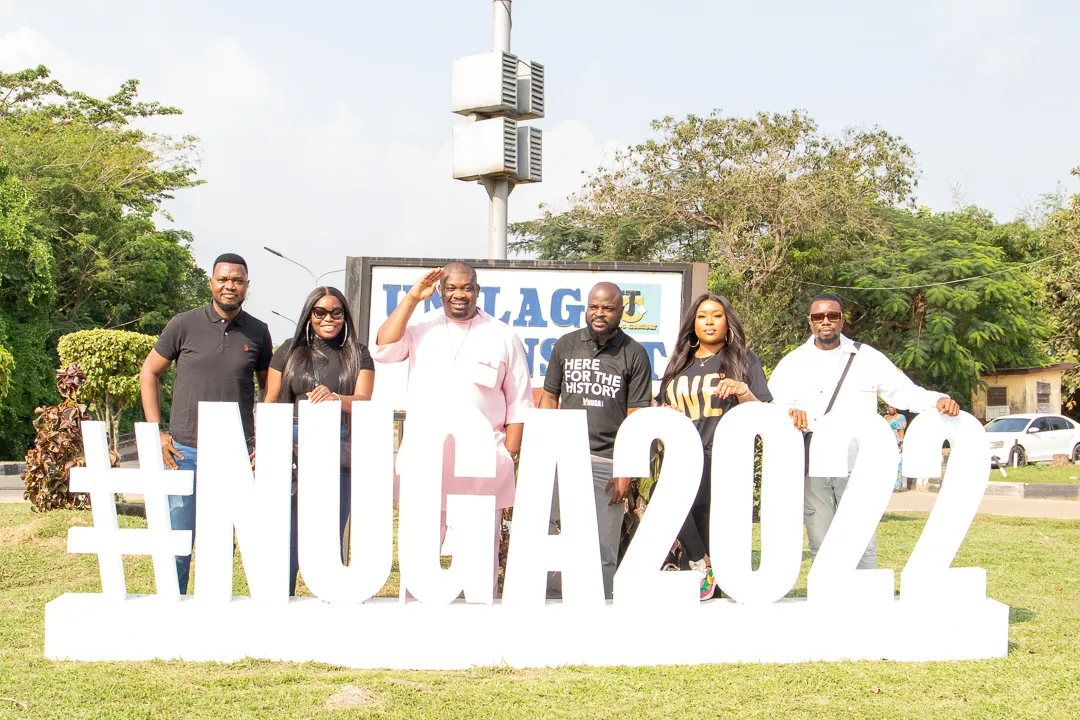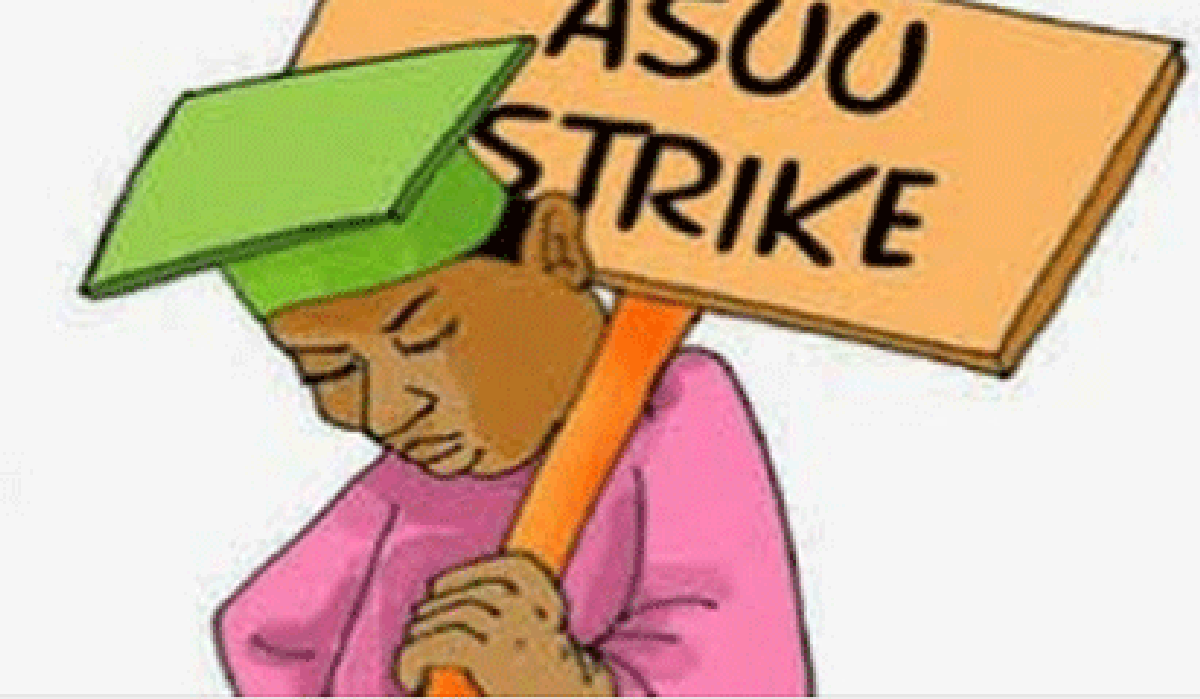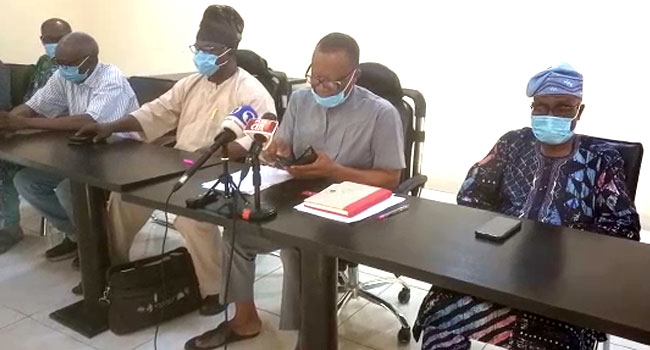The Academic Staff Union of Universities (ASUU) has said it would end its warning strike on Monday, as considerations on indefinite strike commence.
TheNewsGuru.com reports that the national leadership of the union would make public its decision on Monday.
In its Tweet on Sunday, the Union made it known that it will end the warning strike tomorrow (Monday).
See Tweet below:

It was gathered that the National Executive Committee (NEC) of the union had earlier given the go-ahead to the national leadership to call out members on indefinite strike if nothing tangible was achieved during the eight weeks of their warning strike.
The union had earlier gone on a month warning strike on February 14 this year, and extended it by another eight weeks which comes to an end on Monday, May 9, 2022.
While ASUU was into the second round of its warning strike, other staff unions in the university system also embarked on strike.
The unions are the Senior Staff Association of Nigerian Universities, SSANU, the National Association of Academic Technologists, NAAT, and the Non-Academic Staff Union of Education and Allied Institutions, NASU.
Though the Minister of Labour and Employment, Dr Chris Ngige, had met with the leadership of SSANU, NAAT, and NASU, nothing concrete came out of the meetings.
He is yet to meet with ASUU leadership, though he announced last weekend that he would meet with them.
According to the National President of ASUU, Prof. Emmanuel Osodeke, the union had not got an invitation from the government’s team as of the weekend.
“We too heard it in the news what the Minister of Labour said about meeting with us, but as we talk, nobody has reached out to us for any meeting. We don’t know when the meeting will be called. However, I think before going to the press to announce any proposed meeting, what ought to have been done is to inform us. Anyway, we are waiting for the meeting when it is called,” he said.
On what would be the next line of action, Osodeke said the national leadership of the union would decide that.
Speaking on the situation, the National President of the National Parent Teacher Association of Nigeria, NAPTAN, Alhaji Haruna Danjuma, expressed disgust with the continued closure of the universities.
“We cannot continue to waste the time of our children. They are staying much at home than in school now. It is unfortunate that we are yet to get over the issue of the closure of our higher institutions incessantly. That is a minus for the system. How do we expect foreigners to respect our certificates?
“Incidentally, it is not everybody that can afford to send their children abroad to study. We must make our education sector work and put an end to this rot. We plead with the government and the university workers to find a mid-course and resolve this issue and let academic activities resume in these institutions, ” he said.
In a chat with our correspondent, the National President of the National Association of Nigerian Students, NANS, Comrade Sunday Asefon, said the association would study the situation and react appropriately.
“We already have a plan of action in place regarding our demands for the reopening of the universities without further delay and we are keeping faith with that. However, if the strike is extended after the eight weeks of warning action, we will also react appropriately too.
“Nigeria students have wasted more than enough time at home doing nothing. With this current situation now, students have wasted time that is enough for them to finish a semester. We are tired of things like this,” he said.
Recall that NANS has said it would not allow any political party to hold its presidential convention in Abuja unless the universities are reopened.
The All Progressives Congress, APC, and the Peoples Democratic Party, PDP, among other parties have fixed their conventions for Abuja.
ASUU has been on strike since February 14 this year, while non-teaching staff unions have also embarked on industrial action over a month ago.
Students from various tertiary institutions have been on street protests in Ibadan, Benin, Abuja and Lagos calling for an end to the strike and for universities to reopen.







![Only 25 of 170 Nigerian public, private varsities fully accredited – NUC [Full List]](https://thenewsguru.ng/wp-content/uploads/2021/12/NUC.jpg)


